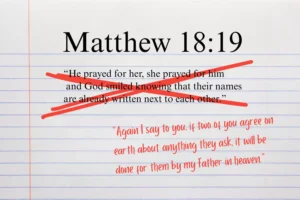I had expected a quiet evening with a book. After a long day of work, I found a pub with outdoor tables not far from the Bodleian Library, and settled in with Thomas Hardy’s Jude the Obscure.
For months I had been looking forward to reading this novel, while doing some summer study and work in Oxford. Set in 19th century Oxfordshire, it is a portrait of the life and times of Jude the stonecarver. More deeply it is a study in the meaning of education, which on a more theoretical level was the direction of my study.
But my quiet was interrupted with the question, “What are you reading?” I looked up and saw a young, earnest face. He introduced himself as a second-generation Keble College student; though Indian, he had grown up in Rome. I told him that I was reading about another young man who had come to the city of steeples and spires with high hopes of being a scholar at Oxford. Though Jude had diligently prepared himself through a regimen of self-disciplined study — learning Greek and Latin and reading all the required texts — he was not able to get in because he had neither connections nor money. And we talked for some time about the intellectual snobbery which had so defeated the obscure Jude.
“What are you studying at Keble?” I asked. Having lived my life among students it was obvious within sentences that this young man was unusually articulate. He told me of his studies in political theory, and I asked more questions. The longer we talked, the more ironic our conversation seemed. I was talking about a book which explored the question, “What’s the point of education?” with a student who seemed remarkably insensitive to the responsibility of knowledge. His own studies were extremely self-oriented, with no concern for people — political theory, with no apparent concern for the polis. In the most selfish way, he saw his education as a passport to privilege.
I pressed the young student, hoping — as Hamlet taught, that “the play’s the thing to catch the conscience of the king” — to tell enough of Jude’s story to help him see himself more truthfully. We parried back-and-forth for a long time, but throughout he seemed as hard-hearted as he was articulate. I shook my head sadly as I watched him walk away, knowing that he had little if any sense of the stewardship of his gifts in service to the world.
On the other hand. Just a couple months ago I was again in Oxford, and met another young man studying political theory who was also of Indian descent. Unlike the first student, this one was almost done with his education. Having gone through Harvard for his B.A. and Ph.D., he was completing a year of post-graduate study in Oxford. We went off for lunch together and talked for a long time about his studies and his hopes and dreams for the future — in Oxford’s oldest pub, a venerable institution serving students since the 13th century.
In the back-and-forth of conversation we talked about what we were reading. He had come to finish out his graduate study, wanting to “think theologically” about a very contemporary and complex political question, and knew that some of the best people in the world were on the Oxford faculty. I had been reading the works of Michael Polanyi, the scientist and philosopher whose analysis of modern ways of knowing has been so transformational, as we move into of what many are calling “the post-modern” era, in these last years of the 20th century. Polanyi’s critique of the Enlightenment epistemology was that, fundamentally, it led to detachment and disengagement, i.e., I can know but not care. We wondered together about a way of knowing, a way of learning, that might be inextricably linked with the notion of responsibility.
As we parted I found myself thinking a lot about what had passed between us. I don’t know that I have ever met a more graceful young man; that is, a young man so full of grace. Not only was that evident in his personal qualities, showing a remarkable thoughtfulness and kindness to all. But beyond that, it was his “full of grace” vision for his academic labor itself that impressed me even more. The categories and questions that he used to make sense of his studies were deeply and distinctively marked by the gospel of the kingdom.
The longer we talked the more impressed I was with the contrast in conversations between these two unusually intelligent Indian students studying politics at Oxford. If the first student was marked by a hard-hearted concern for him and him alone, the second was marked by a remarkable care for “the least of these,” to remember the words of Jesus. If the one was able to study the “polis ” with no evident concern for people, the other had forged a worldview that had people made in the image of God at its very heart. If the one saw his education as simply and straightforwardly a passport to privilege, the other saw his life and learning in stewardship to God and in service to the world. To put it starkly, it was the difference between selfishness and selflessness.
How is that in studying the same “stuff” two students could come to such different conclusions about its meaning? To press the question even a bit more deeply: how did the second student learn to love what God loves, and to see that concern as the very core of his studies — even in the very secularly spirited settings of Harvard and Oxford?
These questions are rooted in the biblical reality that teaches what we see and hear is most profoundly affected by the nature and direction of our hearts. In the Hebrew worldview, which explicitly frames the Old Testament and implicitly the New, the heart is the center of all that we are as human beings. In it we are most truthfully understood, and out of it we are most clearly known. For this reason the Proverbs put it plainly: “Lay hold of my words with all your heart” (4:4), and “Above all else, guard your heart, for it is the wellspring of life” (4:23). Jesus is just as straightforward: “For out of the overflow of the heart the mouth speaks” (Matthew 12:34), and “But the things that come out of the mouth come from the heart” (Matthew 15:18). And He pictures this biblical truth for us in His response to the widow of Nain whose only son had died: “When the Lord saw her, His heart went out to her and He said, ‘Don’t cry.’ The He went up and touched the coffin, and those carrying it stood still. He said, ‘Young man, I say to you get up!'” (Luke 7: 13- 14). We see and hear out of our hearts, and so seeing and hearing are moral acts and result in moral action.
This is true for every son of Adam and daughter of Eve, in every culture and every century. And so we need to understand that these two students’ worldviews and ways of life are different — because of their hearts. They see and hear the world differently — because of their hearts. They make sense of the world and of their place in it differently — because of their hearts.
How then do we grow our hearts so that we see and hear as we ought? The word “ought” is a tip-off to a dilemma that must be understood, if we are ever to learn to love what God loves. In the moral life, whatever one’s heart commitment, it is all too easy to do what one ought to do simply because one ought to do it. At least for a while. Most of the time, that motivation wears down and out. And then what? In a life where one’s moral vision has been transformed by the amazing grace of God, it is possible for duty to grow into desire.
Inch by inch and day by our desires are transformed, so that we increasingly long for what is real and true and right; in sum, for God himself. No longer is self at the center of the cosmos, and so no longer is it possible to see one’s education as a passport to privilege. Rather — and this is all by great grace — we start to see that history begins and ends with God, and that its unfolding in our own times and places only makes sense if He is there. And then slowly, slowly, we come to understand that it is only as our deepest commitments and concerns are transformed — becoming holy as He himself is holy — that we become fully human, true sons and daughters of the second Adam, Jesus, who was, is, and ever shall be God Incarnate.
It is as we draw near to this God in worship and service that we come to know Him and to love Him, and then, choice by choice, year after year, we begin to know what His commitments and concerns are — and to love them because we love Him. Augustine’s insight echoes through the centuries, probing the deep place where belief and behavior are formed. “For when there is a question as to whether a man is good, one does not ask what he believes … but what he loves.”
What do you love? And what are you learning to love? For Christian students, this movement from head to heart, from doctrine to discipleship, is what the college years are all about. In the reading and reflection upon texts, in the choice and deepening of friendships, in the listening to music and watching of films, in the decisions about semester breaks and summer vacations, in the forming of vocational visions — in and through it all, it is nothing more or less than learning to love what God loves.
Two very bright students, studying the same “stuff” in the same place, and yet … and yet, one is learning to love what God loves. In a word, it is a matter of the heart. That is the difference, and the difference it makes is all the difference in the world.
Copyright 1998 Steven Garber. All rights reserved.










